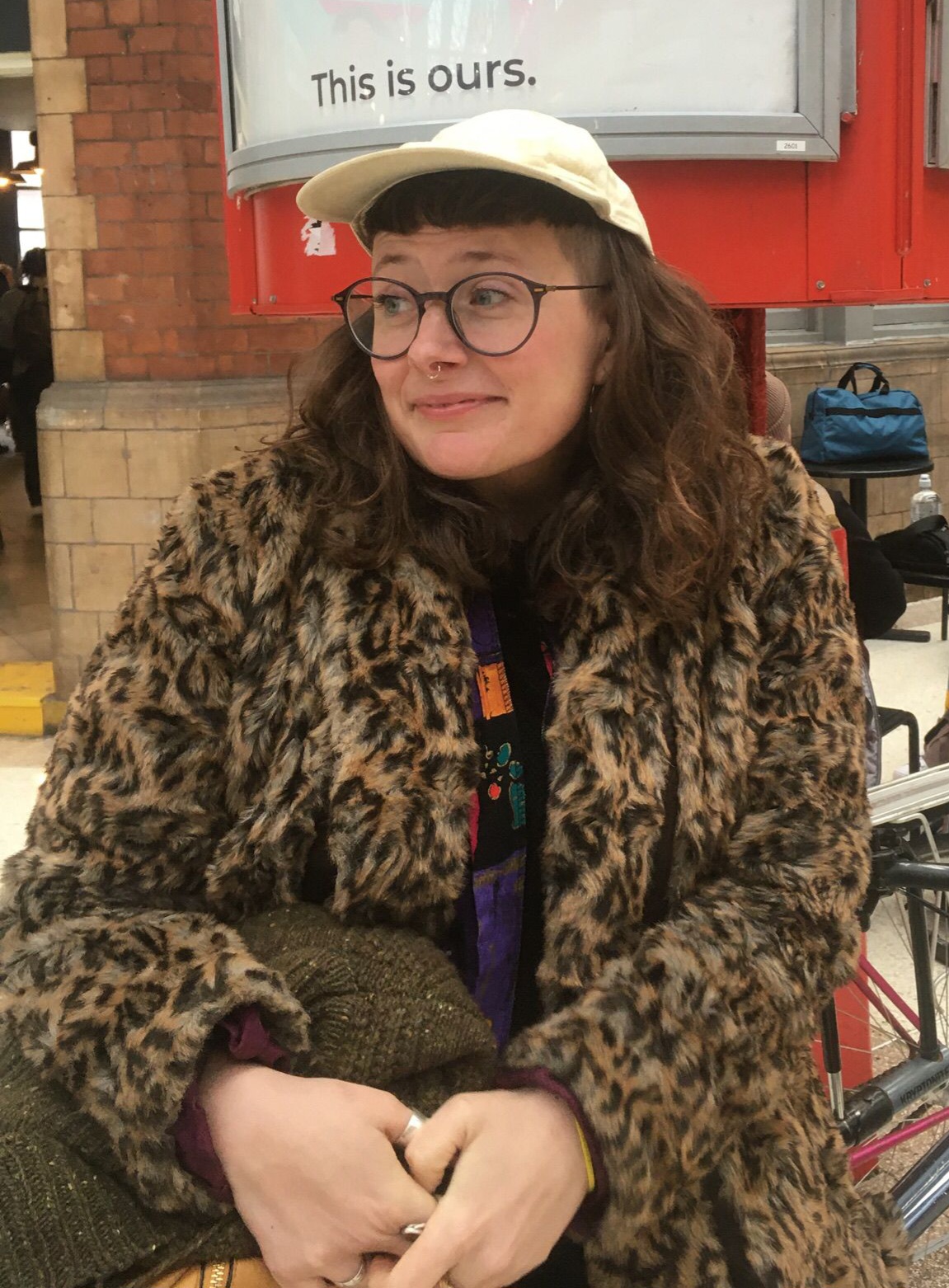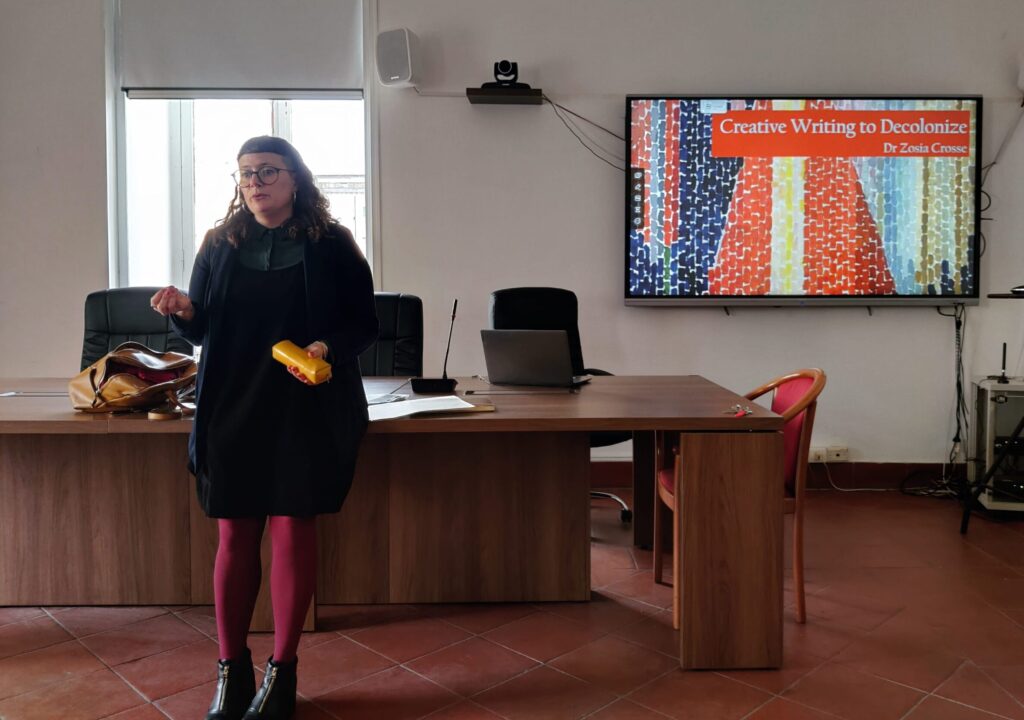Dr Zosia Crosse is a queer, working class writer, living in Bristol, the proud progeny of Polish refugees and Lancashire labourers. She grew up by the muddy sea in Weston-super-Mare and was a young carer. She writes fiction, memoir and poetry, and her PhD thesis explores writing feminist fiction as a means of processing trauma. With 17 years’ teaching experience and over a decade of experience working in the women’s sector with survivors of domestic and sexual violence, she offers a creative, trauma-informed approach to coaching. She loves nothing more than to learn and grow and improve her craft, and the only thing that equals that is to witness those she facilitates do the same.
She recently delivered collaborative workshops on how creative writing can be used to decolonize academia at the University of Naples “L’Orientale”, Italy. Her current research and writing investigates biomythography as a method of writing for marginalized people. Her poetry will be published by Late Britain Press this summer, and her academic work will feature in Writing in Practice later in the year. She loves coffee and swimming. And yes, they go very well together.

Events and Workshops
University of Naples “L’Orientale”, Italy
In this series of workshops we taught participants some of the concepts that explain how academic writing perpetuates colonising narratives, then we introduced the practice of free writing to the students, proposing that creative writing can open our minds to new ways of exploring ideas, theories and unconscious bias. We guided students on how to use these practices as a tool for research which overcomes or at least takes into account those same dynamics and biases.
Archiving Our Selves
In this sold-out workshop, as part of Awraq Festival in Bristol, together we considered whether we can transform how we feel about something by writing about it, exploring how to write with vulnerability in a way that empowers. We asked the question, is it possible to write about our selves in a way that nourishes and sustains the collective? And paying special attention to process, we created pieces fit for the archive of resilience and resistance.

Writing
[link to poetry anthology]
[link to Writing in Practice article]